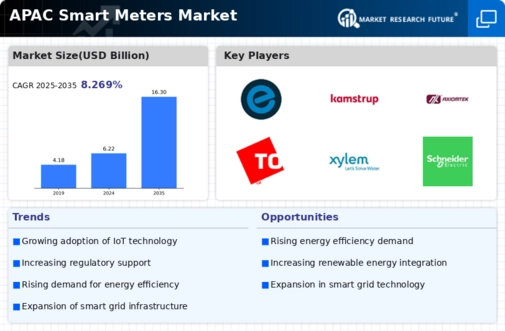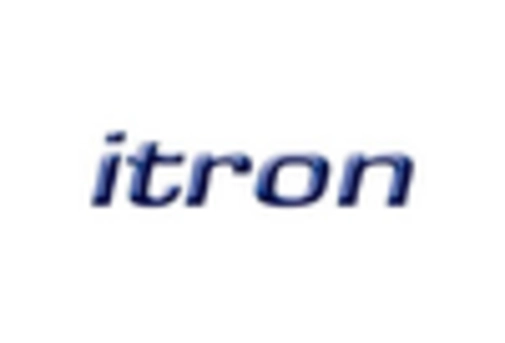APAC Smart Meters Market Summary
The Asia-Pacific APAC Smart Meters Market is projected to grow significantly from 6.22 USD Billion in 2024 to 16.3 USD Billion by 2035.
Key Market Trends & Highlights
APAC Smart Meters Market Key Trends and Highlights
- The market is expected to experience a compound annual growth rate (CAGR) of 9.15 percent from 2025 to 2035.
- By 2035, the market valuation is anticipated to reach 16.3 USD Billion, indicating robust growth potential.
- In 2024, the market is valued at 6.22 USD Billion, reflecting a strong foundation for future expansion.
- Growing adoption of smart metering technology due to increasing energy efficiency demands is a major market driver.
Market Size & Forecast
| 2024 Market Size | 6.22 (USD Billion) |
| 2035 Market Size | 16.3 (USD Billion) |
| CAGR (2025-2035) | 9.15% |
Major Players
Echelon, Kamstrup, Axiomtek, Toshiba, Sensus, Schneider Electric, Honeywell, Itron, Nuri Telecom, NEC Corporation, Landis+Gyr, Fluke Corporation, Enel X, Siemens, General Electric























